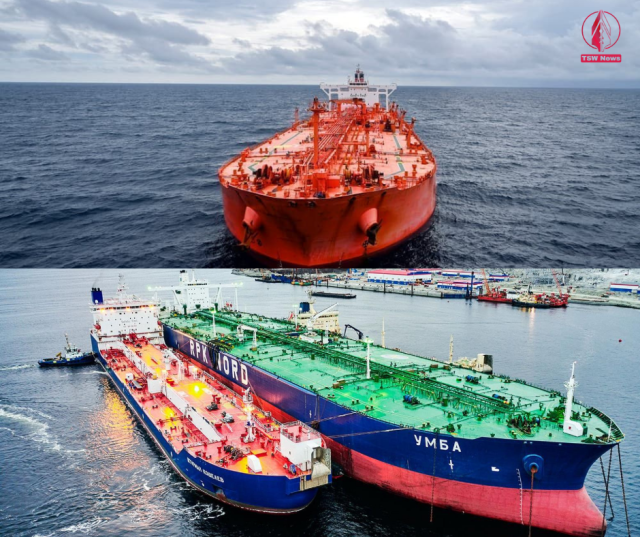China Ramps Up Imports of Sanctioned Russian Arctic Oil via Costly Ship Transfers
- Posted on April 17, 2025
- News
- By Arijit Dutta
- 80 Views
China is increasing imports of Russian Arctic oil through ship-to-ship transfers near Singapore and Malaysia, avoiding US sanctions. Despite high logistics costs and lengthy routes, refiners are drawn by discounts. India has reduced purchases, while new buyers like Syria and Myanmar have emerged. Final volumes hinge on demand and delivery issues.

China is set to significantly increase its imports of sanctioned Russian Arctic oil in April, as traders and analytics firms report a surge in ship-to-ship (STS) transfers aimed at bypassing US sanctions. The move comes after Russia offered deep discounts on Arctic oil grades like ARCO, Novy Port, and Varandey, incentivizing Chinese refiners to purchase via alternative shipping routes using non-sanctioned tankers.
According to Vortexa analyst Emma Li, at least 4 million barrels were transferred last week near Singapore and Malaysia, and 16 million more are expected in the South China Sea this month. The oil, initially loaded onto sanctioned vessels, is transferred in international waters to Very Large Crude Carriers (VLCCs) like the Atila, which recently offloaded Russian crude in China’s Dongying port.
China's Arctic oil imports, which reached 25,000 barrels per day in March, are now rebounding sharply, though final delivery volumes will depend on logistical challenges and demand from Chinese buyers. The longer delivery routes—via the Suez Canal due to the closure of the North Sea Route until July—have added significant time and cost to the supply chain.
India, once a key buyer of Arctic oil, has reduced purchases in light of the sanctions. Indian authorities recently blocked an attempted at-sea transfer of Russian crude, while other buyers like Syria and Myanmar have begun taking limited shipments.
Also Read: Trump Blasts Harvard, Calls It ‘A Joke’ Amid Federal Funding Freeze
Produced in Russia’s harsh northern territories, Arctic oil demands enormous investment, and current prices have dropped to discounts below Brent crude levels, reversing earlier premiums. Despite the financial and logistical challenges, China’s willingness to absorb these supplies reflects both its energy needs and its strategic positioning in the face of global geopolitical shifts.




